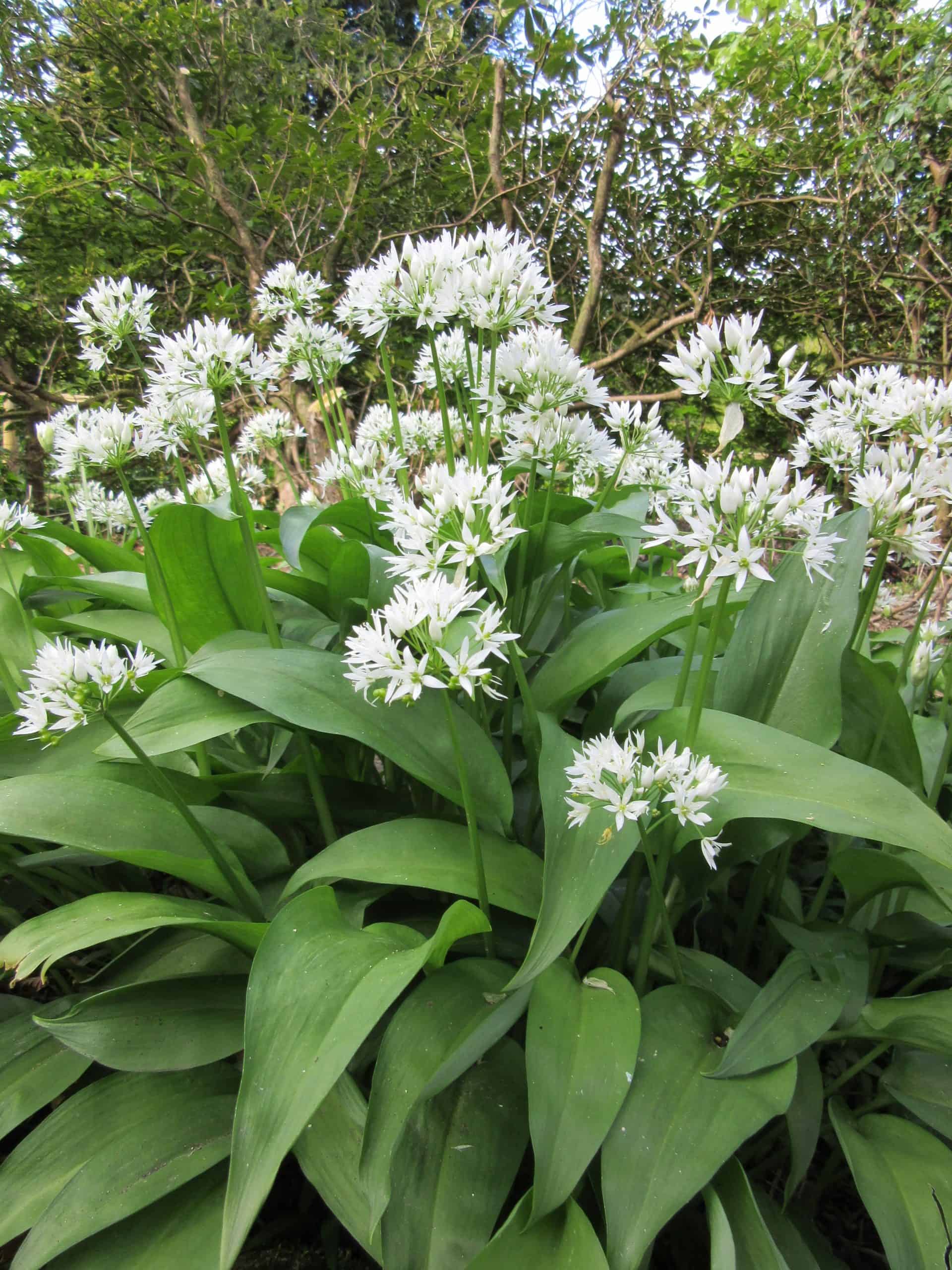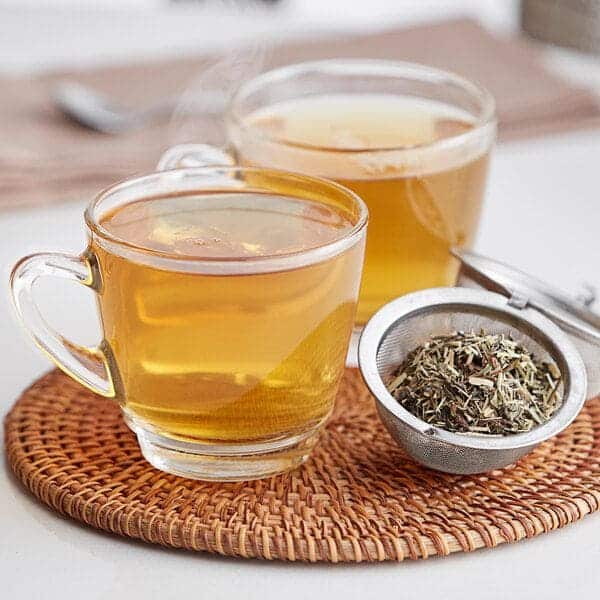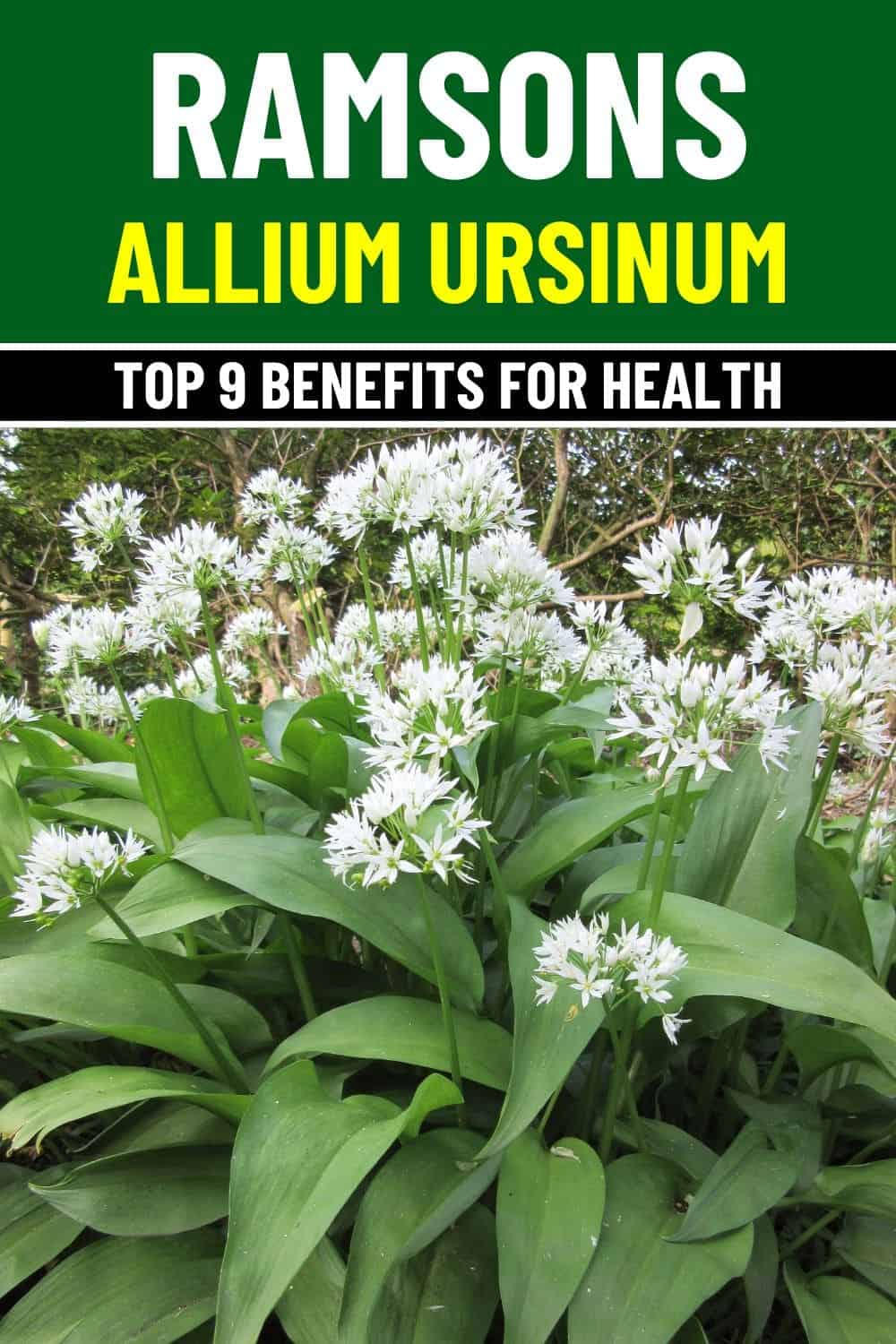Ramsons, also known as wild garlic (Allium ursinum), is a nutrient-rich plant that has been cherished for centuries for its culinary and medicinal properties.
Often found growing in woodlands and shaded areas across Europe and parts of Asia, ramsons boast a fresh, garlicky aroma and a delicate flavor that makes them a favorite in traditional cooking.
But ramsons are more than just a culinary delight, they’re a powerhouse of health benefits.
#1. Supports Heart Health
Ramsons are renowned for their cardiovascular benefits, primarily due to allicin, a sulfur compound also found in garlic.
Allicin works by reducing LDL (bad) cholesterol levels and improving HDL (good) cholesterol, promoting better circulation. Additionally, allicin helps relax blood vessels, reducing blood pressure and lowering the risk of heart disease.

#2. Boosts Immunity
High levels of vitamin C (about 150 mg per 100 grams of fresh leaves) in ramsons strengthen the immune system by enhancing the production of white blood cells.
Flavonoids and antioxidants in ramsons protect cells from oxidative stress, reducing susceptibility to infections.
#3. Promotes Digestive Health
Sulfur compounds like allicin exhibit mild antibacterial effects, helping eliminate harmful bacteria while preserving beneficial gut flora.
Their fiber content aids in digestion and prevents constipation, ensuring smooth bowel movements.

#4. Natural Detoxifier
The sulfur compounds in ramsons, including diallyl sulfides, stimulate the production of glutathione, a powerful antioxidant that aids in liver detoxification.
These compounds support the liver’s ability to break down and eliminate toxins, making ramsons an effective natural cleanser.
#5. Reduces Inflammation
Ramsons contain anti-inflammatory compounds such as quercetin and kaempferol, which inhibit inflammatory markers like cytokines.
A 2015 study published in Phytotherapy Research demonstrated that ramsons reduced inflammation in animal models of arthritis.

#6. Antimicrobial Properties
Allicin in ramsons disrupts bacterial cell membranes, making it effective against harmful microbes such as E. coli, Candida albicans, and Helicobacter pylori.
A 2020 study in the International Journal of Food Microbiology found that wild garlic extracts inhibited the growth of antibiotic-resistant bacterial strains, highlighting their potential as a natural antimicrobial agent.
#7. Enhances Skin Health
The high antioxidant content in ramsons, particularly vitamin A and vitamin C, protects skin cells from oxidative damage caused by UV exposure and pollution.
These vitamins stimulate collagen production, improving skin elasticity and reducing wrinkles.

#8. Supports Respiratory Health
Ramsons have been traditionally used to alleviate respiratory conditions such as colds, bronchitis, and asthma.
Their antibacterial properties help clear airways by reducing mucus buildup, while their anti-inflammatory effects soothe irritated respiratory tissues.

#9. Improves Bone Health
Ramsons are a natural source of calcium (20 mg per 100 grams) and vitamin K, both essential for maintaining strong bones.
Calcium builds bone density, while vitamin K helps regulate calcium absorption and promotes bone mineralization, reducing the risk of osteoporosis.

How to Use Ramsons Safely
Ramsons are versatile and can be incorporated into your diet in various ways:
- Fresh salads: You add chopped ramson leaves to salads for a fresh, garlicky flavor.
- Soups and stews: Enhance your dishes with ramsons for added nutrients and aroma.
- Pesto: You can blend ramsons with olive oil, nuts, and cheese to create a wild garlic pesto.
- Stir-fries: Use ramsons as a substitute for spinach or garlic in stir-fried dishes.
- Herbal tea: Brew ramson leaves in hot water for a detoxifying and soothing tea.

Precautions and Cautions
Some people may experience mild allergic reactions such as itching or digestive discomfort, so you should discontinue use if symptoms persist.
In addition, ramsons can be mistaken for toxic plants like lily of the valley. Always ensure proper identification before consuming wild plants.
Disclaimer
This article is for informational purposes only and should not replace professional medical advice, diagnosis, or treatment.
Always consult a healthcare provider before introducing new herbs or remedies into your diet, especially if you have pre-existing conditions or are pregnant or breastfeeding.







